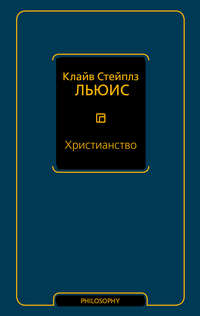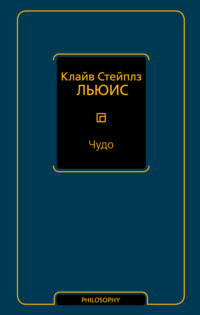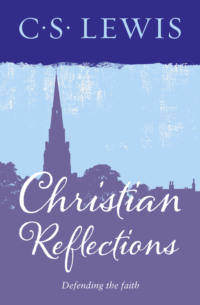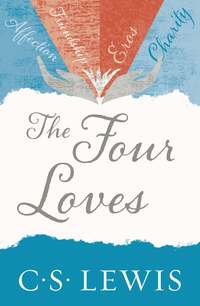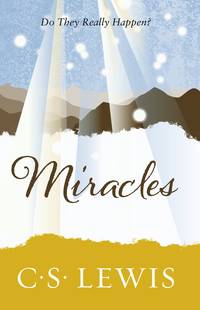
Полная версия
A Year With Aslan: Words of Wisdom and Reflection from the Chronicles of Narnia
– The Voyage of the Dawn Treader
Why do some people fight magic and adventure, while others thrive in the unexpected? Which do you tend towards?
JANUARY 24
Puddleglum
“I’M TRYING TO CATCH A FEW EELS to make an eel stew for our dinner,” said Puddleglum. “Though I shouldn’t wonder if I didn’t get any. And you won’t like them much if I do.”
“Why not?” asked Scrubb.
“Why, it’s not in reason that you should like our sort of victuals, though I’ve no doubt you’ll put a bold face on it. All the same, while I am a catching of them, if you two could try to light the fire – no harm in trying! The wood’s behind the wigwam. It may be wet. You could light it inside the wigwam, and then we’d get all the smoke in our eyes. Or you could light it outside, and then the rain would come and put it out. Here’s my tinder-box. You wouldn’t know how to use it, I expect.”
But Scrubb had learnt that sort of thing on his last adventure. The children ran back together to the wigwam, found the wood (which was perfectly dry) and succeeded in lighting a fire with rather less than the usual difficulty. . . .
“Now,” said Puddleglum. “Those eels will take a mortal long time to cook, and either of you might faint with hunger before they’re done. I knew a little girl – but I’d better not tell you that story. It might lower your spirits, and that’s a thing I never do. So, to keep your minds off your hunger, we may as well talk about our plans.”
“Yes, do, let’s,” said Jill. “Can you help us to find Prince Rilian?”
The Marsh-wiggle sucked in his cheeks till they were hollower than you would have thought possible. “Well, I don’t know that you’d call it help,” he said. “I don’t know that anyone can exactly help. It stands to reason we’re not likely to get very far on a journey to the North, not at this time of the year, with the winter coming on soon and all. And an early winter too, by the look of things. But you mustn’t let that make you down-hearted. Very likely, what with enemies, and mountains, and rivers to cross, and losing our way, and next to nothing to eat, and sore feet, we’ll hardly notice the weather. And if we don’t get far enough to do any good, we may get far enough not to get back in a hurry.”
Both children noticed that he said “we”, not “you”, and both exclaimed at the same moment, “Are you coming with us?”
“Oh yes, I’m coming of course. Might as well, you see. I don’t suppose we shall ever see the King back in Narnia, now that he’s once set off for foreign parts; and he had a nasty cough when he left. Then there’s Trumpkin. He’s failing fast. And you’ll find there’ll have been a bad harvest after this terrible dry summer. And I shouldn’t wonder if some enemy attacked us. Mark my words.”. . .
“Look here!” said Scrubb, suddenly losing his temper, as people so easily do when they have been frightened. “I don’t believe the whole thing can be half as bad as you’re making out; any more than the beds in the wigwam were hard or the wood was wet. I don’t think Aslan would ever have sent us if there was so little chance as all that.”
– The Silver Chair
Why might Puddleglum always think about the worst-case scenario? Why is his outlook so frustrating to Scrubb? Who have you known who seems to always look on the dark side? Do you have any tendencies in that direction?
JANUARY 25
The Narnian Lords
“WAY! WAY! WAY!” came the voice. “Way for the White Barbarian King, the guest of the Tisroc (may he live forever)! Way for the Narnian lords.”. . .
It was quite unlike any other party they had seen that day. The crier who went before it shouting, “Way, way!” was the only Calormene in it. And there was no litter; everyone was on foot. There were about half a dozen men and Shasta had never seen anyone like them before. For one thing, they were all as fair-skinned as himself, and most of them had fair hair. And they were not dressed like men of Calormen. Most of them had legs bare to the knee. Their tunics were of fine, bright, hardy colours – woodland green, or gay yellow, or fresh blue. Instead of turbans they wore steel or silver caps, some of them set with jewels, and one with little wings on each side. A few were bare-headed. The swords at their sides were long and straight, not curved like Calormene scimitars. And instead of being grave and mysterious like most Calormenes, they walked with a swing and let their arms and shoulders go free, and chatted and laughed. One was whistling. You could see that they were ready to be friends with anyone who was friendly, and didn’t give a fig for anyone who wasn’t. Shasta thought he had never seen anything so lovely in his life.
– The Horse and His Boy
Why do the Narnian lords make such a favourable impression on Shasta? What do they represent to him? What might people notice about you if they saw you walking by?
JANUARY 26
Aslan Roars
THE LIGHT WAS CHANGING. Low down in the east, Aravir, the morning star of Narnia, gleamed like a little moon. Aslan, who seemed larger than before, lifted his head, shook his mane, and roared.
The sound, deep and throbbing at first like an organ beginning on a low note, rose and became louder, and then far louder again, till the earth and air were shaking with it. It rose up from that hill and floated across all Narnia. Down in Miraz’s camp men woke, stared palely in one another’s faces, and grasped their weapons. Down below that in the Great River, now at its coldest hour, the heads and shoulders of the nymphs, and the great weedy-bearded head of the river-god, rose from the water. Beyond it, in every field and wood, the alert ears of rabbits rose from their holes, the sleepy heads of birds came out from under wings, owls hooted, vixens barked, hedgehogs grunted, the trees stirred. In towns and villages mothers pressed babies close to their breasts, staring with wild eyes, dogs whimpered, and men leaped up groping for lights. Far away on the northern frontier the mountain giants peered from the dark gateways of their castles.
– Prince Caspian
What kind of emotions would you say Aslan’s roar stirs in those who hear it? How can one sound represent different things to different people? Where do you see that in our world today?
JANUARY 27
Real Magic
“YOU?” SAID THE QUEEN in a still more terrible voice. Then, in one stride, she crossed the room, seized a great handful of Uncle Andrew’s grey hair and pulled his head back so that his face looked up into hers. Then she studied his face just as she had studied Digory’s face in the palace of Charn. He blinked and licked his lips nervously all the time. At last she let him go: so suddenly that he reeled back against the wall.
“I see,” she said scornfully, “you are a Magician – of a sort. Stand up, dog, and don’t sprawl there as if you were speaking to your equals. How do you come to know Magic? You are not of royal blood, I’ll swear.”
“Well – ah – not perhaps in the strict sense,” stammered Uncle Andrew. “Not exactly royal, Ma’am. The Ketterleys are, however, a very old family. An old Dorsetshire family, Ma’am.”
“Peace,” said the Witch. “I see what you are. You are a little, peddling Magician who works by rules and books. There is no real Magic in your blood and heart. Your kind was made an end of in my world a thousand years ago. But here I shall allow you to be my servant.”
– The Magician’s Nephew
What might the Queen mean about having Magic in your blood and heart, as compared to Uncle Andrew’s type of Magic? What have you learned by closely studying someone’s face?
JANUARY 28
Strawberry Speaks
ALL THIS TIME THE CABBY had been trying to catch Strawberry’s eye. Now he did. “Now, Strawberry, old boy,” he said. “You know me. You ain’t going to stand there and say as you don’t know me.”
“What’s the Thing talking about, Horse?” said several voices.
“Well,” said Strawberry very slowly, “I don’t exactly know, I think most of us don’t know much about anything yet. But I’ve a sort of idea I’ve seen a thing like this before. I’ve a feeling I lived somewhere else – or was something else – before Aslan woke us all up a few minutes ago. It’s all very muddled. Like a dream. But there were things like these three in the dream.”
“What?” said the Cabby. “Not know me? Me what used to bring you a hot mash of an evening when you was out of sorts? Me what rubbed you down proper? Me what never forgot to put your cloth on you if you was standing in the cold? I wouldn’t ’ave thought it of you, Strawberry.”
“It does begin to come back,” said the Horse thoughtfully. “Yes. Let me think now, let me think. Yes, you used to tie a horrid black thing behind me and then hit me to make me run, and however far I ran this black thing would always be coming rattle-rattle behind me.”
“We ’ad our living to earn, see,” said the Cabby. “Yours the same as mine. And if there ’adn’t been no work and no whip there’d ’ave been no stable, no hay, no mash, and no oats. For you did get a taste of oats when I could afford ’em, which no one can deny.”
“Oats?” said the Horse, pricking up his ears. “Yes, I remember something about that. Yes, I remember more and more. You were always sitting up somewhere behind, and I was always running in front, pulling you and the black thing. I know I did all the work.”
– The Magician’s Nephew
Aslan has just made Strawberry a Talking Horse. How do you think the Cabby feels to hear Strawberry’s depiction of their life together? When have you been surprised by another’s point of view? How often do you try to see life from others’ perspectives?
JANUARY 29
Asking for Help
“ASLAN – and children from another world,” thought Tirian. “They have always come in when things were at their worst. Oh, if only they could now.”
And he called out “Aslan! Aslan! Aslan! Come and help us now.”
But the darkness and the cold and the quietness went on just the same.
“Let me be killed,” cried the King. “I ask nothing for myself. But come and save all Narnia.”
And still there was no change in the night or the wood, but there began to be a kind of change inside Tirian. Without knowing why, he began to feel a faint hope. And he felt somehow stronger. “Oh Aslan, Aslan,” he whispered. “If you will not come yourself, at least send me the helpers from beyond the world. Or let me call them. Let my voice carry beyond the world.” Then, hardly knowing that he was doing it, he suddenly cried out in a great voice:
“Children! Children! Friends of Narnia! Quick. Come to me. Across the worlds I call you; I, Tirian, King of Narnia, Lord of Cair Paravel, and Emperor of the Lone Islands!”
– The Last Battle
Why do you think Tirian feels stronger after he asks for help, even before there is any sign that his pleas will be answered?
JANUARY 30
Trust Me
CASPIAN was unexpectedly wakened by Doctor Cornelius after he had been only a few hours in bed.
“Are we going to do a little Astronomy, Doctor?” said Caspian.
“Hush!” said the Doctor. “Trust me and do exactly as I tell you. Put on all your clothes; you have a long journey before you.”
Caspian was very surprised, but he had learned to have confidence in his Tutor and he began doing what he was told at once. When he was dressed, the Doctor said, “I have a wallet for you. We must go into the next room and fill it with victuals from your Highness’s supper table.”
“My gentlemen-in-waiting will be there,” said Caspian.
“They are fast asleep and will not wake,” said the Doctor. “I am a very minor magician but I can at least contrive a charmed sleep.”
They went into the antechamber and there, sure enough, the two gentlemen-in-waiting were, sprawling on chairs and snoring hard. . . .
“Have you your sword?” asked the Doctor.
“Yes,” said Caspian.
“Then put this mantle over all to hide the sword and the wallet. That’s right. And now we must go to the Great Tower and talk.”
When they had reached the top of the tower . . . Doctor Cornelius said,
“Dear Prince, you must leave this castle at once and go to seek your fortune in the wide world. Your life is in danger here.”
“Why?” asked Caspian.
“Because you are the true King of Narnia: Caspian the Tenth, the true son and heir of Caspian the Ninth. Long life to your Majesty” – and suddenly, to Caspian’s great surprise, the little man dropped down on one knee and kissed his hand.
– Prince Caspian
How might these events have changed if Caspian did not trust Doctor Cornelius so much? Who do you trust no matter what? Who trusts you in this way?
JANUARY 31
A Shocking Revelation
“WHAT DOES IT ALL MEAN? I don’t understand,” said Caspian.
“I wonder you have never asked me before,” said the Doctor, “why, being the son of King Caspian, you are not King Caspian yourself. Everyone except your Majesty knows that Miraz is a usurper. When he first began to rule he did not even pretend to be the King: he called himself Lord Protector. But then your royal mother died, the good Queen and the only Telmarine who was ever kind to me. And then, one by one, all the great lords, who had known your father, died or disappeared. Not by accident, either. Miraz weeded them out. . . . And finally he persuaded the seven noble lords, who alone among all the Telmarines did not fear the sea, to sail away and look for new lands beyond the Eastern Ocean and, as he intended, they never came back. And when there was no one left who could speak a word for you, then his flatterers (as he had instructed them) begged him to become King. And of course he did.”
“Do you mean he now wants to kill me too?” said Caspian.
“That is almost certain,” said Doctor Cornelius.
“But why now?” said Caspian. “I mean, why didn’t he do it long ago if he wanted to? And what harm have I done him?”
“He has changed his mind about you because of something that happened only two hours ago. The Queen has had a son.”
“I don’t see what that’s got to do with it,” said Caspian.
“Don’t see!” exclaimed the Doctor. “Have all my lessons in History and Politics taught you no more than that? Listen. As long as he had no children of his own, he was willing enough that you should be King after he died. . . . Now that he has a son of his own he will want his own son to be the next King. You are in the way. . . .”
“Is he really as bad as that?” said Caspian. “Would he really murder me?”
“He murdered your Father,” said Doctor Cornelius.
– Prince Caspian
How does Doctor Cornelius’s information alter Caspian’s picture of the world? Have you ever received news that changed how you see the world?
FEBRUARY

FEBRUARY 1
Not Good Enough
“WHY, IT’S ONLY A GIRL!” [Shasta] exclaimed.
“And what business is it of yours if I am only a girl?” snapped the stranger [Aravis]. “You’re probably only a boy: a rude, common little boy – a slave probably, who’s stolen his master’s horse.”
“That’s all you know,” said Shasta. . . .
“Look here,” said the girl. “I don’t mind going with you, Mr War Horse, but what about this boy? How do I know he’s not a spy?”
“Why don’t you say at once that you think I’m not good enough for you?” said Shasta.
“Be quiet, Shasta,” said Bree. “The Tarkheena’s question is quite reasonable. I’ll vouch for the boy, Tarkheena. He’s been true to me and a good friend. And he’s certainly either a Narnian or an Archenlander.”
“All right, then. Let’s go together.” But she didn’t say anything to Shasta and it was obvious that she wanted Bree, not him.
“Splendid!” said Bree. . . .
Both the children unsaddled their horses and the horses had a little grass and Aravis produced rather nice things to eat from her saddle-bag. But Shasta sulked and said, No thanks, and that he wasn’t hungry. And he tried to put on what he thought very grand and stiff manners, but as a fisherman’s hut is not usually a good place for learning grand manners, the result was dreadful. And he half knew that it wasn’t a success and then became sulkier and more awkward than ever.
– The Horse and His Boy
What do Shasta and Aravis each do to make their first encounter less than ideal? Have you ever had to repair matters after a bad first encounter?
FEBRUARY 2
Good but Not Safe
“YOU’LL UNDERSTAND when you see him.”
“But shall we see him?” asked Susan.
“Why, Daughter of Eve, that’s what I brought you here for. I’m to lead you where you shall meet him,” said Mr Beaver.
“Is – is he a man?” asked Lucy.
“Aslan a man!” said Mr Beaver sternly. “Certainly not. I tell you he is the King of the wood and the son of the great Emperor-beyond-the-Sea. Don’t you know who is the King of Beasts? Aslan is a lion – the Lion, the great Lion.”
“Ooh!” said Susan, “I’d thought he was a man. Is he – quite safe? I shall feel rather nervous about meeting a lion.”
“That you will, dearie, and no mistake,” said Mrs Beaver; “if there’s anyone who can appear before Aslan without their knees knocking, they’re either braver than most or else just silly.”
“Then he isn’t safe?” said Lucy.
“Safe?” said Mr Beaver; “don’t you hear what Mrs Beaver tells you? Who said anything about safe? ’Course he isn’t safe. But he’s good. He’s the King, I tell you.”
– The Lion, the Witch and the Wardrobe
What does it mean for someone to be good but not safe? Why do we value safety so much in our society? How can an overemphasis on safety cause us to miss what is good?
FEBRUARY 3
A Star at Rest
“AND ARE WE NEAR the World’s End now, Sir?” asked Caspian. “Have you any knowledge of the seas and lands further east than this?”
“I saw them long ago,” said the Old Man, “but it was from a great height. I cannot tell you such things as sailors need to know.”
“Do you mean you were flying in the air?” Eustace blurted out.
“I was a long way above the air, my son,” replied the Old Man. “I am Ramandu. But I see that you stare at one another and have not heard this name. And no wonder, for the days when I was a star had ceased long before any of you knew this world, and all the constellations have changed.”
“Golly,” said Edmund under his breath. “He’s a retired star.”
“Aren’t you a star any longer?” asked Lucy.
“I am a star at rest, my daughter,” answered Ramandu. “When I set for the last time, decrepit and old beyond all that you can reckon, I was carried to this island. I am not so old now as I was then. Every morning a bird brings me a fire-berry from the valleys in the Sun, and each fire-berry takes away a little of my age. And when I have become as young as the child that was born yesterday, then I shall take my rising again (for we are at earth’s eastern rim) and once more tread the great dance.”
“In our world,” said Eustace, “a star is a huge ball of flaming gas.”
“Even in your world, my son, that is not what a star is but only what it is made of.”
– The Voyage of the Dawn Treader
What is the distinction between what something is and what it is made of? In what ways do we often mix these two?
FEBRUARY 4
Puzzle and Shift
IN THE LAST DAYS OF NARNIA, far up to the west beyond Lantern Waste and close beside the great waterfall, there lived an Ape. He was so old that no one could remember when he had first come to live in those parts, and he was the cleverest, ugliest, most wrinkled Ape you can imagine. He had a little house, built of wood and thatched with leaves, up in the fork of a great tree, and his name was Shift. There were very few Talking Beasts or Men or Dwarfs, or people of any sort, in that part of the wood, but Shift had one friend and neighbour who was a donkey called Puzzle. At least they both said they were friends, but from the way things went on you might have thought Puzzle was more like Shift’s servant than his friend. He did all the work. When they went together to the river, Shift filled the big skin bottles with water but it was Puzzle who carried them back. When they wanted anything from the towns farther down the river it was Puzzle who went down with empty panniers on his back and came back with the panniers full and heavy. And all the nicest things that Puzzle brought back were eaten by Shift; for as Shift said, “You see, Puzzle, I can’t eat grass and thistles like you, so it’s only fair I should make it up in other ways.” And Puzzle always said, “Of course, Shift, of course. I see that.” Puzzle never complained, because he knew that Shift was far cleverer than himself and he thought it was very kind of Shift to be friends with him at all. And if ever Puzzle did try to argue about anything, Shift would always say, “Now, Puzzle, I understand what needs to be done better than you. You know you’re not clever, Puzzle.” And Puzzle always said, “No, Shift. It’s quite true. I’m not clever.” Then he would sigh and do whatever Shift had said.
– The Last Battle
How does Shift treat Puzzle and how does Puzzle respond? Have you ever played Shift’s or Puzzle’s role in a relationship?
FEBRUARY 5
Your Majesty’s Tender Years
CASPIAN [SAID], “I want to know why you have permitted this abominable and unnatural traffic in slaves to grow up here, contrary to the ancient custom and usage of our dominions.”
“Necessary, unavoidable,” said his Sufficiency. “An essential part of the economic development of the islands, I assure you. Our present burst of prosperity depends on it.”
“What need have you of slaves?”
“For export, your Majesty. Sell ’em to Calormen mostly; and we have other markets. We are a great centre of the trade.”
“In other words,” said Caspian, “you don’t need them. Tell me what purpose they serve except to put money into the pockets of such as Pug?”
“Your Majesty’s tender years,” said Gumpas, with what was meant to be a fatherly smile, “hardly make it possible that you should understand the economic problem involved. I have statistics, I have graphs, I have—”
“Tender as my years may be,” said Caspian, “I believe I understand the slave trade from within quite as well as your Sufficiency. And I do not see that it brings into the islands meat or bread or beer or wine or timber or cabbages or books or instruments of music or horses or armour or anything else worth having. But whether it does or not, it must be stopped.”
“But that would be putting the clock back,” gasped the governor. “Have you no idea of progress, of development?”
“I have seen them both in an egg,” said Caspian. “We call it ‘Going Bad’ in Narnia. This trade must stop.”
– The Voyage of the Dawn Treader
What is Caspian’s argument against the economic profit and prosperity of slavery? How do money and profit obscure morality in our world?



